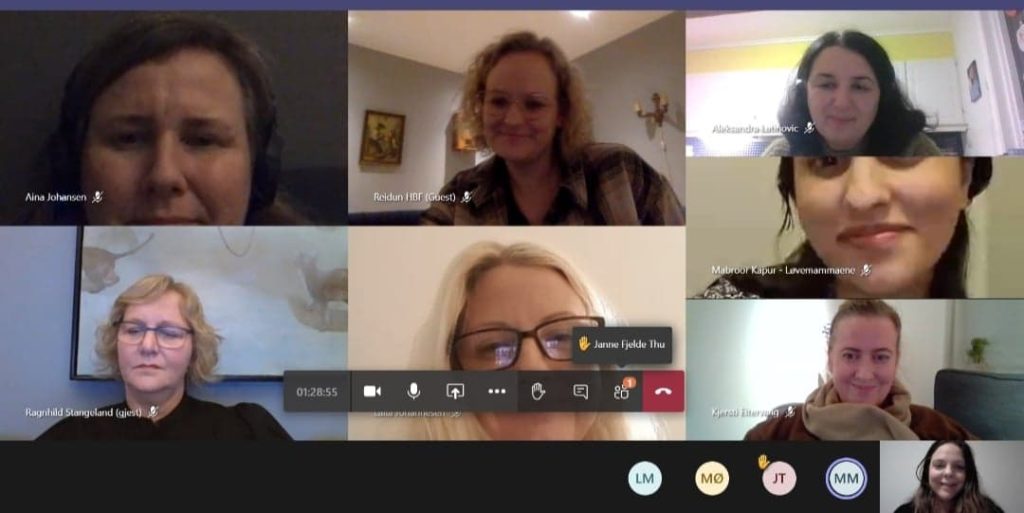CHILDREN'S PALLIATIVE TEAM

Today the Løvemammaene were invited to a meeting with what will become the children's palliative care team at Stavanger University Hospital. We were one of several organizations that participated with input and experiences to promote the user perspective. Due to the current situation with Covid-19, the meeting was held digitally. From the Løvemammaene, Mabroor met Kapur and Marlene Ramberg, both from the Løvemammaene's Child Palliation Committee.
The team to be established was interested in hearing about what we thought needed to be in place and what one should be able to expect when being followed up by a pediatric palliative care team, and we were able to share both from our professional and self-perceived perspectives.
We at Løvemammaene promoted and placed particular emphasis on:
- Establishment of good services at home
Many children and young people who are undergoing palliative care want and must spend time at home. It is incredibly important that stable, good and safe services are in place as quickly as possible. This is what the municipality will be responsible for and we at Løvemammaene have experienced that this is not always easy. Here we believe it is important that the children's palliative care team helps the family, both through guidance, the application process and follow-up through, for example, attending meetings and providing detailed documents with professional weight regarding what the family actually needs from municipal services. - Comprehensive family perspective, also in the time afterwards
A children's palliative care team should and must focus on the whole family. This applies to both parents and siblings and in some cases other members who participate closely in everyday life and not just the sick child. We have experienced ourselves that siblings are very often forgotten, even though they are also close to and on the journey and sit with their own grief and their own thoughts. Several are told that the sibling is too young to understand what is happening or that he/she seems so content and happy that one does not see the need for support. We know that parents have been left to their own devices when they have to tell their siblings tough and incomprehensible news. - Psychologist services
We also know that many parents with children whose lives have been shortened do not receive any form of psychological services. A child palliative care team must be multidisciplinary and a psychologist must be part of the team. It is incredibly important that parents have a place to talk and come up with strategies for how to cope with what is impossible to cope with, even after the child's death.
Otherwise, we also emphasized how important time and place are when communicating difficult messages to parents. Having time to sit down, repeat and explain the doctor's language and the words used, answer questions and that such conversations are not taken over the child's head.
We are left with the impression that this was a good and productive meeting. It is incredibly great to see that more children's palliative care teams are appearing around the country and we greatly appreciate that it seems that more people are putting the user perspective in focus when these teams are established.
- SUBJECTS: Current affairs, Child palliation, Committees, Our work
- Published:
- The lion mothers
- SUBJECTS: Current affairs, Child palliation, Committees, Our work
- Published:
- The lion mothers